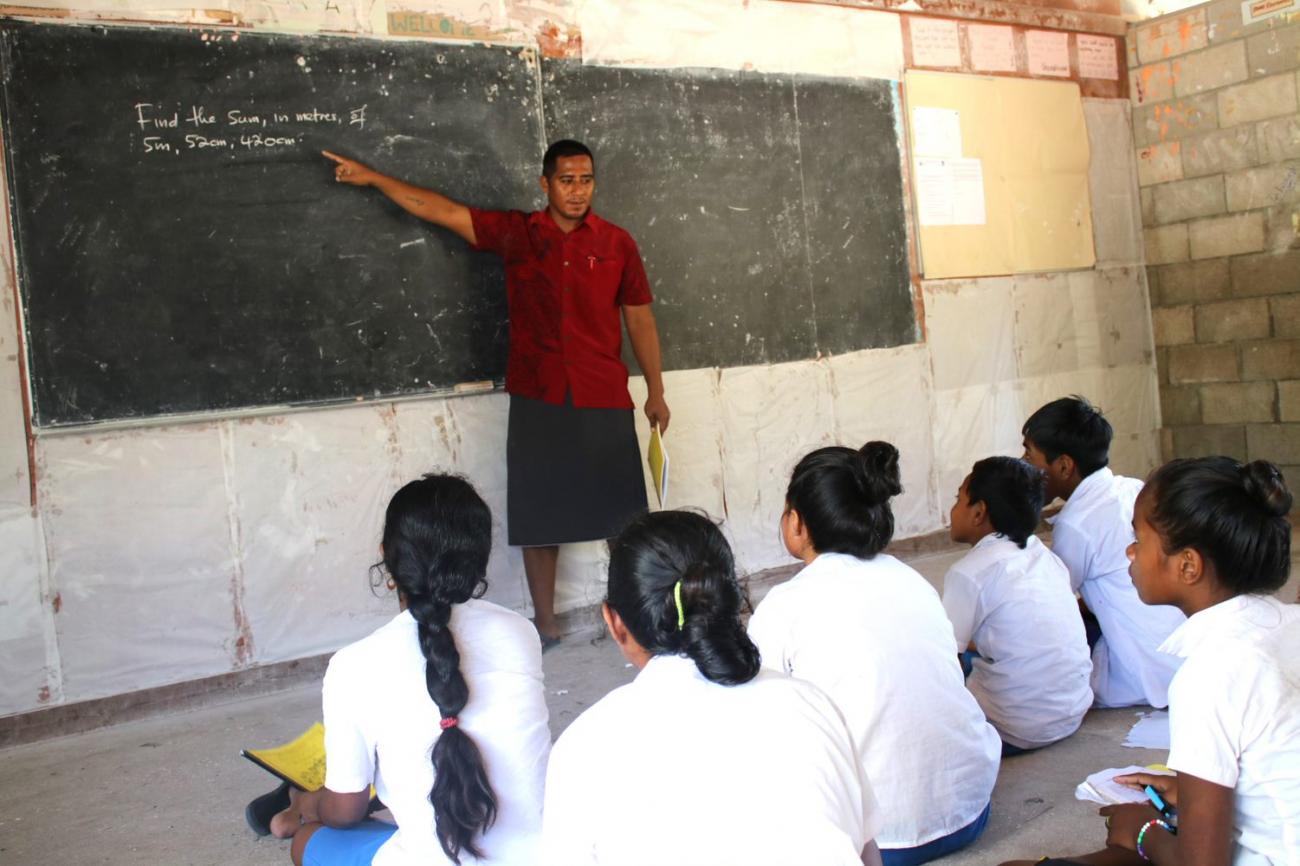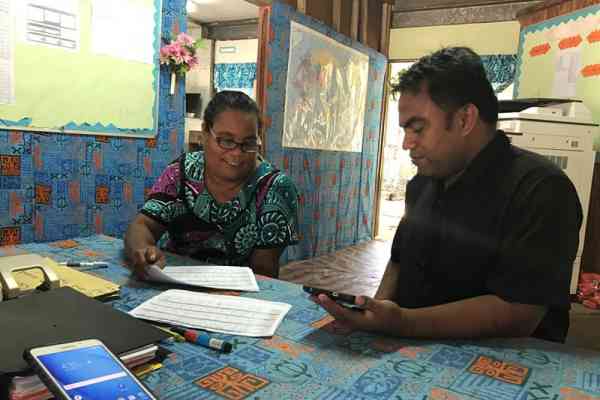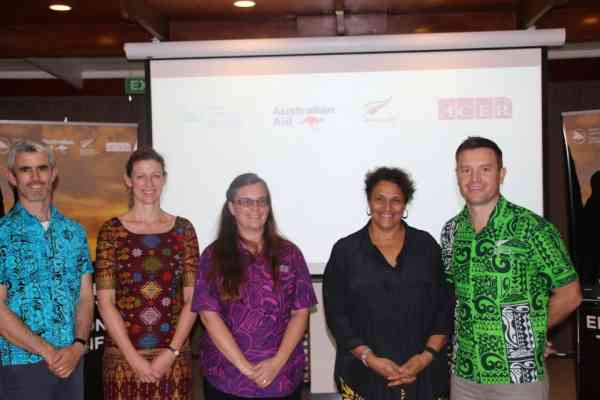(disponible en anglais uniquement)
Timely boost for quality education in the Pacific
The regional effort to transform Pacific education is expected to gain traction following the recent approval of USD 15 million (EUR 12.3 million) in grant money to the education partnership under the Pacific Regional Education Framework (PacREF).
The regional grant for the improvement of basic education in the Pacific was confirmed by the international funding platform, Global Partnership for Education (GPE), in a release last month.
GPE announced a total grant money of USD 20.5 million (equivalent to EUR 16.87 million) to eight eligible Pacific countries. Six of these countries, namely Kiribati, the Marshall Islands, Samoa, the Solomon Islands, Tonga, and Tuvalu, agreed to have their country allocations of USD 2.5 million (EUR 2.05 million) directed to the PacREF, effectively sharing the support with all 15 Pacific countries who make up the partnership.
The unique funding arrangement was successfully proposed by the PacREF partnership, of which the Pacific Community’s Educational Quality and Assessment Programme (EQAP) is an implementing agency. EQAP director Dr Michelle Belisle welcomed the GPE’s decision to boost its education efforts in the Pacific. “The GPE funding is a welcome investment into regional education priorities,” she said.
Dr Belisle also commended the collective wisdom of the six countries’ leadership to pool the grants for the benefit of all students in the Pacific. She said, “The regional effort across the countries and agencies involved demonstrates the success that can be achieved when everyone works together towards shared priorities and the ultimate beneficiaries are the students in Pacific Island countries and territories.”
PacREF Unit coordinator Filipe Jitoko similarly spoke of how regionalism has proven effective in education. “Countries have come together and put in resources to support a regional mechanism to effectively and efficiently provide teacher training education in the case of USP (the University of the South Pacific) and assessment systems in the case of EQAP,” he said. “These are areas where countries lack the expertise or resources to establish their own institutions to offer this service or public good. This is the same concept with PacREF where the six countries are coming together to share resources for the wider regional good for the benefit of children in the Pacific.”
The PacREF agenda, adopted by the Forum Education Ministers (FEdMM) in 2018, builds on the achievements of the Pacific Education Development Framework (PEDF) and focuses on four key policy areas: quality and relevance, learning pathways, student outcomes and wellbeing, and teacher professionalism. Its programme of activities is spread over 12 years and organised in three phases. The first phase will largely be funded from the GPE funds. The appointed grant agent for this GPE fund is the Asian Development Bank. An implementation rolling plan has been designed by the PacREF’s implementing agencies (EQAP, UNESCO, UNICEF, APTC and the University of the South Pacific). Oversight of the plan’s execution is provided through a robust monitoring and evaluation mechanism led by EQAP, and funded by the Australian Government. The governments of Australia and New Zealand are the leading development aid donors toward education in the region.
Media contact:
Irene Manarae, EQAP Communications Assistant, [email protected] or +679 337 8523


